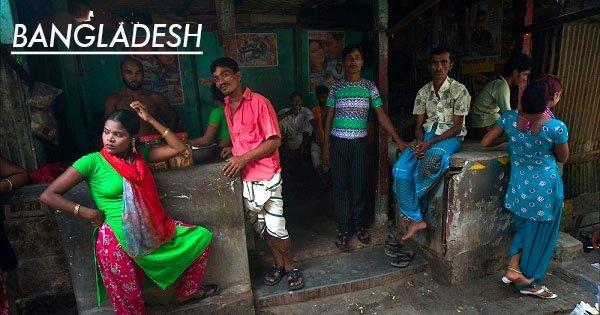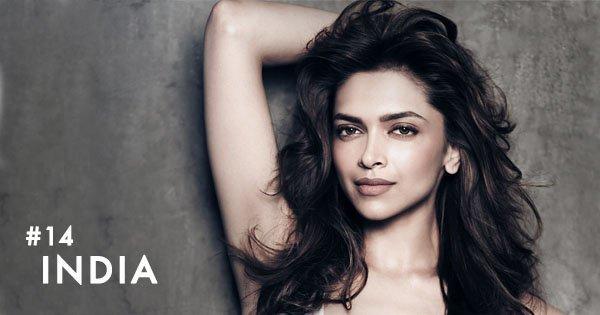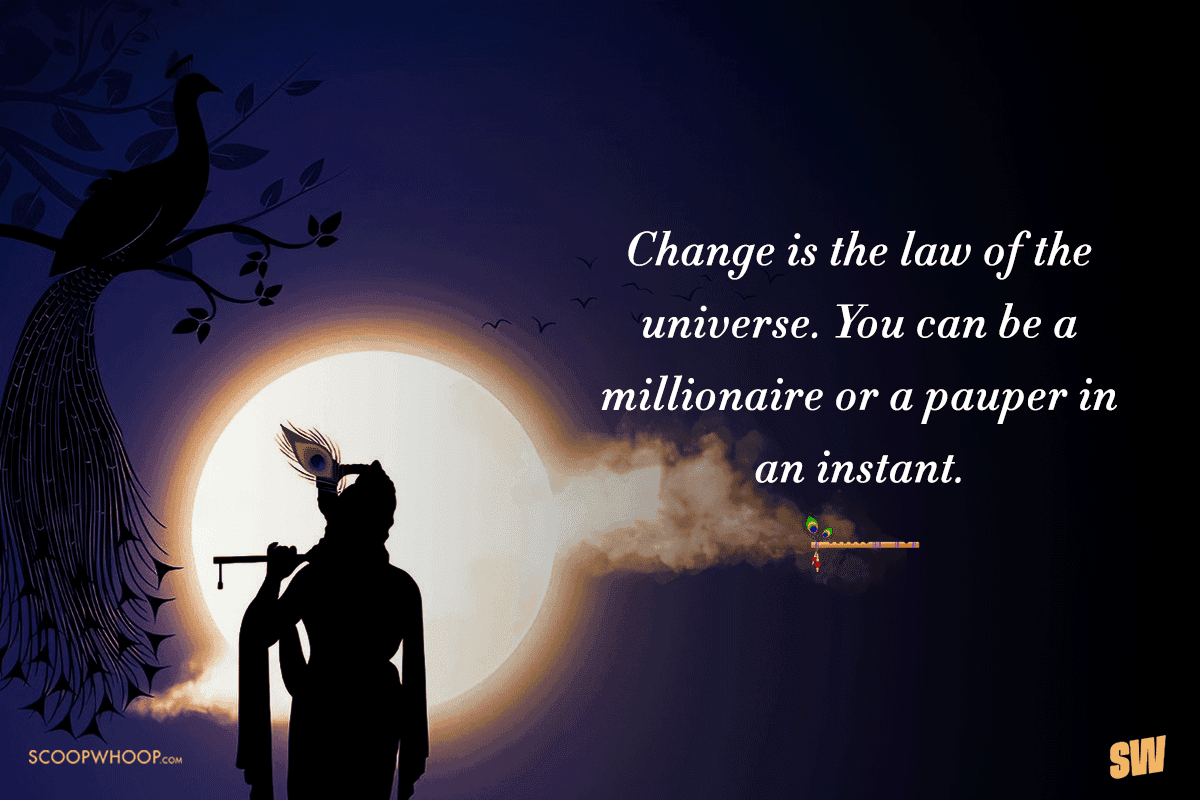Many leaders would think of policies and strategies on the political front. But Mandela simply used a sport, rugby. The white Afrikaner community thrived on sports, especially rugby. And the black community supported any team playing against them.
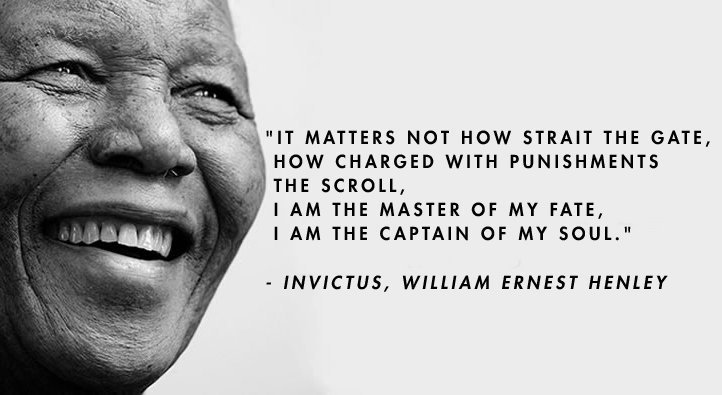
Before apartheid ended in South Africa in 1994, several people were captured and imprisoned for their fight against the horrific racism.
In 1964, Nelson Rolihlahla Mandela was arrested, the 466th prisoner to be put behind bars. After almost 30 years in prison, he would one day lead the nation and bring people of all castes and colours together.
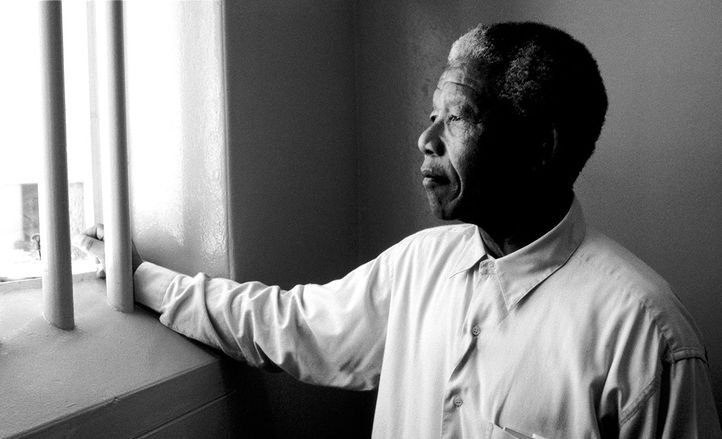
As the 1st President, he knew that the battle against apartheid was only half won. His motive was to build a nation, which he knew could not be achieved until he united his people. Both black & white.
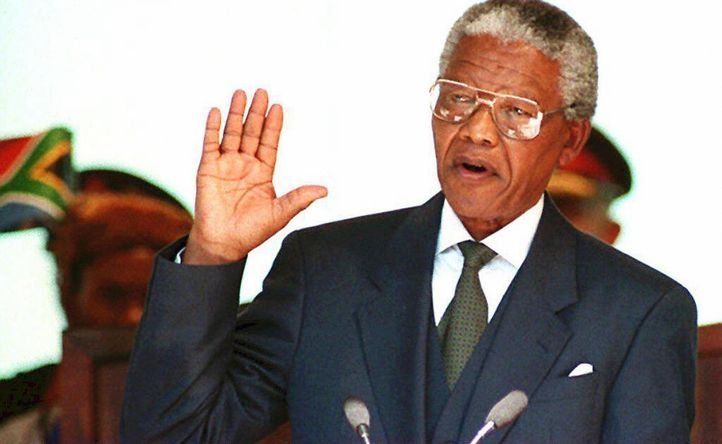
Such was the hatred.
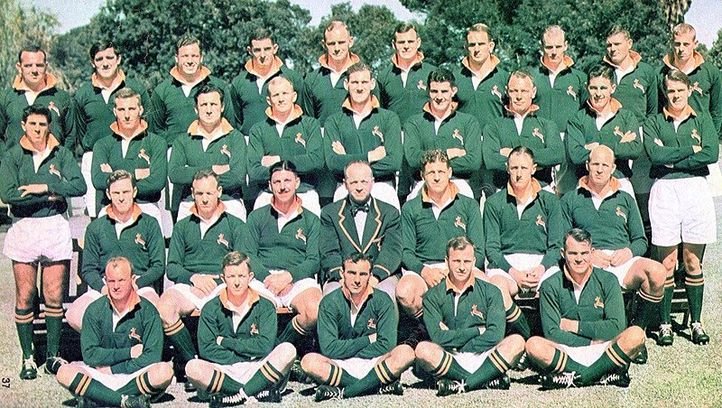
In 1995, South Africa hosted the Rugby World Cup. And Mandela knew that with the world watching, this was their opportunity to prove that the Rainbow Nation can shine.
The South African rugby captain at that time was a white blond Afrikaner named François Pienaar, who as a kid was taught that Mandela was a terrorist.
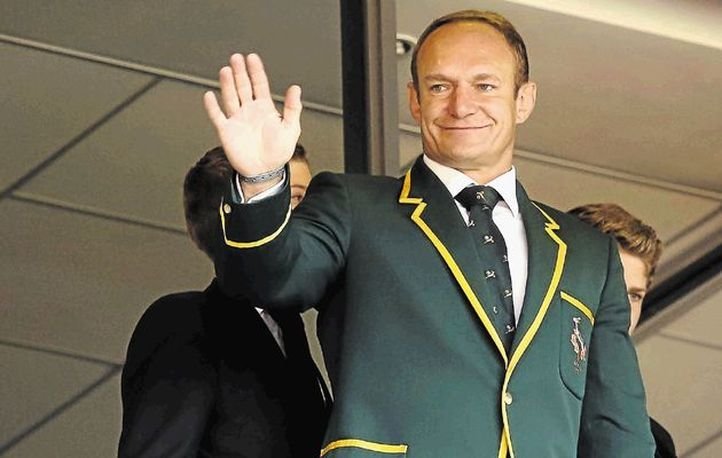
Little did he know that one day he would invite Mandela to his wedding and make him godfather to his two children.
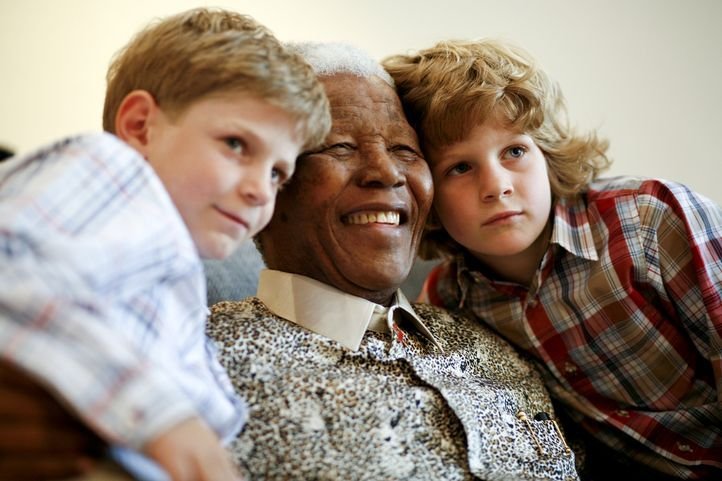
This is the story of these two men, one president and one rugby captain, who used a game to bring the nation together.
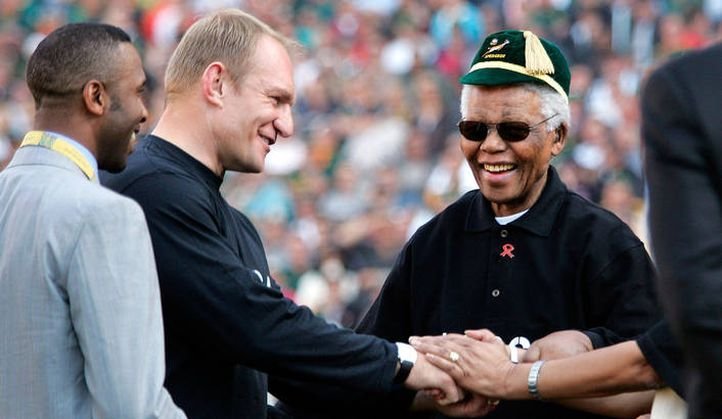
The colour of the South African team was green & gold and their emblem was a springbok. The springbok was believed to be a symbol of apartheid.
So before the World Cup, the SA Rugby Union wanted to remove it and also say goodbye to the green & gold.
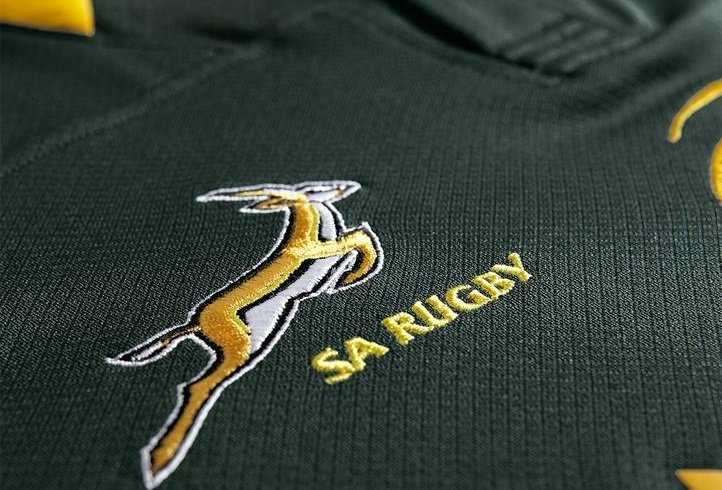
But Mandela persisted that whites were equally part of their country and the colours & symbols depicted their history and shouldn’t be taken away. So, the move never happened.
He personally invited Pienaar and motivated him to win the World Cup. He told him that this was their chance to bring the nation closer.
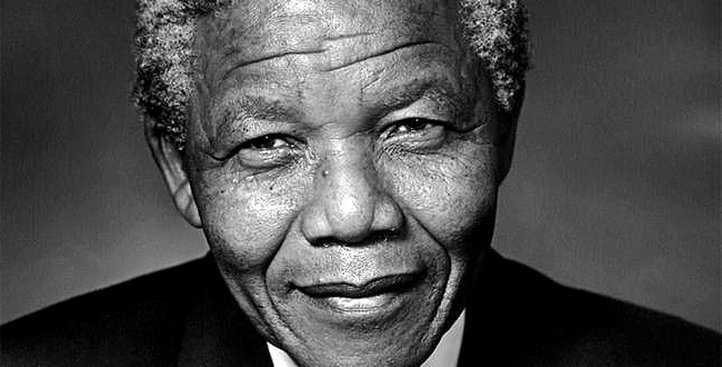
Pienaar was impressed by his passion for a better South Africa and in turn, he pumped his team up before the World Cup. They marched in with the burden of the nation on their shoulders. But they marched in with dedication.
The people, white and black alike, could see the effort they were putting in and gradually both communities started supporting the team, together.
The team kept on winning through the tournament and reached the final.
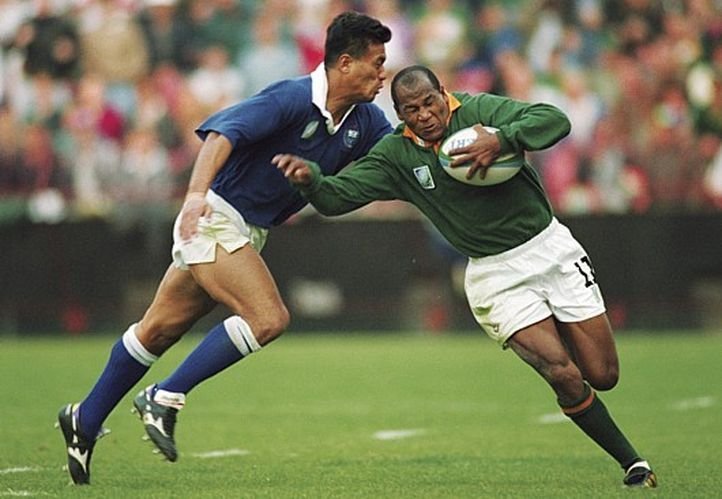
On the day of the final, Nelson Mandela walked into Ellis Stadium dressed in green & gold and sporting the springbok cap. The majority of the crowd was white, and they saw how much the game meant to Mandela. The moment was iconic!
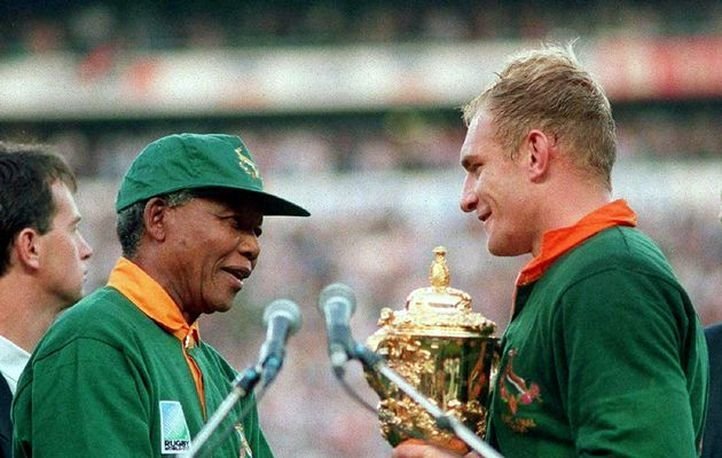
Against the toughest team in the world, New Zealand, the springboks sprung to victory in the final by 15-12, with an extra time drop goal. The World (Cup) was in their hands now.
The blacks shared the whites’ dream of winning the rugby world cup, while the whites sang the blacks’ anthem. And together, they raised a new flag.
A new hybrid anthem was installed, ‘Nkosi Sikelel’ iAfrika’ (God Bless Africa), which had English lyrics in between.
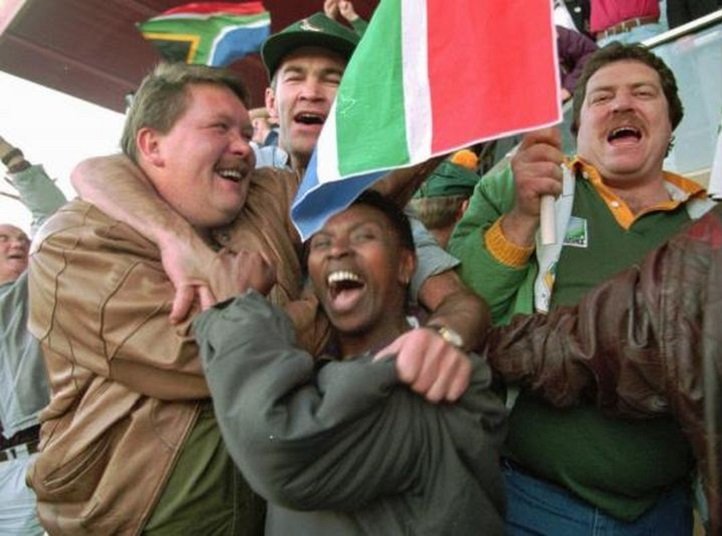
A game had changed the nation. A new South Africa was born with a new anthem, a new flag, a new belief and new life to look forward to.
“Know your enemy, and learn about his favorite sport,” Mandela had said. The enemy were the non believers, and he defeated them by making them believe.
Madiba, as they lovingly called him, had finally brought his people together.
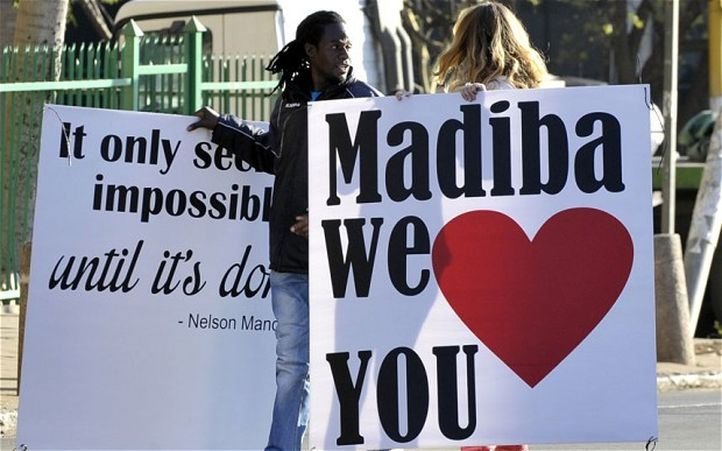
There was a time when whites believed that if someone who has been imprisoned for almost 30 years comes out and is given power, there will be civil warfare. They couldn’t have been more wrong.
“I was thinking about how you spend 30 years in a tiny cell, and come out ready to forgive the people who put you there.” – Matt Damon as François Pienaar in Invictus, the movie.
ADVERTISEMENT
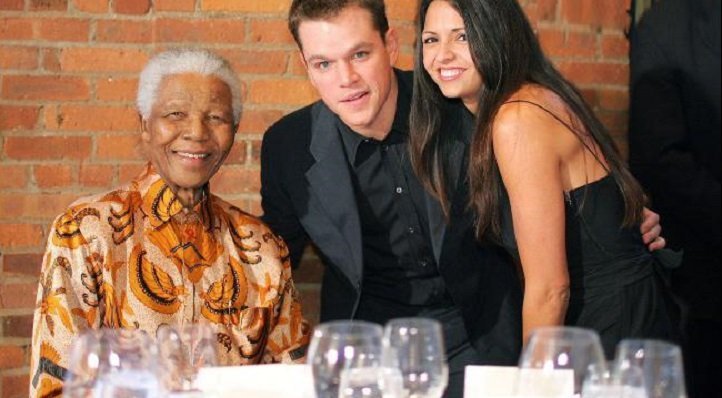
Those of us who have watched the movie Invictus, know all this to be true. ‘Invictus’ the poem, really was Mandela’s favourite and it inspired the novel as well as the movie. The poem gave him strength when felt like giving up.
In the movie, Nelson Mandela’s role was played by Morgan Freeman. He made a believer out of audiences. Here he is reciting the beautiful poem, from memory, in the best way possible:
“Looking back, 1995 became a story about us, a new South Africa finding its identity through sport.”
– François Pienaar, SA rugby captain.
Top picks for you





